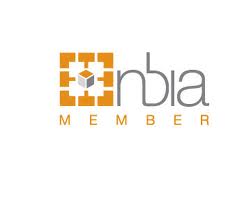 If you are a start-up company and you qualify, incubators can be a fantastic resource for you in your Bootstrapping pursuit of success. They provide the “help of others” part of Bootstrapping and the “limited resources” component of our initial definition of Bootstrapping (to pursue success with limited resources and with the help of others).
If you are a start-up company and you qualify, incubators can be a fantastic resource for you in your Bootstrapping pursuit of success. They provide the “help of others” part of Bootstrapping and the “limited resources” component of our initial definition of Bootstrapping (to pursue success with limited resources and with the help of others).
Here is the NBIA (National Business Incubation Association)’s description of Incubators. “Business incubation is a business support process that accelerates the successful development of start-up and fledgling companies by providing entrepreneurs with an array of targeted resources and services. These services are usually developed or orchestrated by incubator management and offered both in the business incubator and through its network of contacts. A business incubator’s main goal is to produce successful firms that will leave the program financially viable and freestanding. These incubator graduates have the potential to create jobs, revitalize neighborhoods, commercialize new technologies, and strengthen local and national economies.”
Critical to the definition of an incubator is the provision of management guidance, technical assistance, and consulting tailored to young growing companies. Incubators usually also provide clients access to appropriate rental space and flexible leases, shared basic business services and equipment, technology support services, and assistance in obtaining the financing necessary for company growth.
Incubators are physical plants that primarily house the offices of start-up companies. They will rent you flexible leases, which can allow you to expand or shrink your space quickly. Rents vary by incubator, but most often are lower than the market rates at the outset. As you grow, you can upgrade to more space. Specifically the Incubator can provide expert advice in areas such as accounting, legal, marketing, and provide more mundane needs such as telephone systems, fax machines, computers, conference rooms, and clean rooms in Tech Incubators. Fees are charged for some of these services and can vary by incubator. Some incubators have no fees but want equity in your company.
Although there are few of them, there is growing interest in purely virtual incubators. They do not have a physical building for clients’ offices. Services are provided on what you might call an outpatient basis and/or online. There are no face-to-face interactions. This virtual model extends incubation services in areas that don’t have a critical mass of entrepreneurs within a reasonable distance of the incubator.
A hybrid incubation program is gaining considerable traction where traditional physical Incubators are extending their services to off site companies. This fits well for home-based businesses and companies that already have their own buildings.
Incubators come in many flavors. Some are only for technology companies. Some are for a specialty technology. Some are mixed use while others are service or manufacturing oriented.
Here are some Incubator facts from NBIA.
- There are 1115 incubators in the United States.
- 27% of incubators have investment funds.
- 61% have links to angel investors.
- The average stay in an incubator is 33 months.
- About 6% of North American Incubators are for-profit programs.
NBIA estimates that in 2005, North American incubators assisted more than 27,000 start-up companies that employed more than 100,000 workers and generated annual revenues of more than $17 billion.
Most incubator tenants accept start-ups, as well as existing companies
Besides the above described advantages afforded to incubator tenants, some other positives are:
- Networking with other entrepreneurs.
- Getting business from other tenants.
- Getting assistance from specialists in the community to supplement on-site mentors.
- Many Incubators are adding insurance for their tenants.
Be forewarned: it is not easy to get accepted into an incubator. You need to meet the criteria of the one to which you are applying. For sure, you need to prepare for your interview with a sound, well thought out business plan. These plans do not have to be lengthy dissertations. Succinct and short are good.
No matter the tediousness of the application process, an incubator acceptance can be a defining moment in your future success.
A study in 1997, funded by the U.S. Economic Development Administration, found that 87% of incubator graduates were still in business three years after leaving the program. This is considerably higher than start-ups outside of incubators.
To find the incubators near you, go to the NBIA website: www.nbia.org.
About half of the Incubators belong to NBIA. If you do not see one in your area, then contact NBIA. They will advise you of the ones in your locale that may not be their members.
20 E. Circle Drive # 37198
Athens, Ohio 45701-3571
Phone 750-593-4331 Fax 740-593-1996

